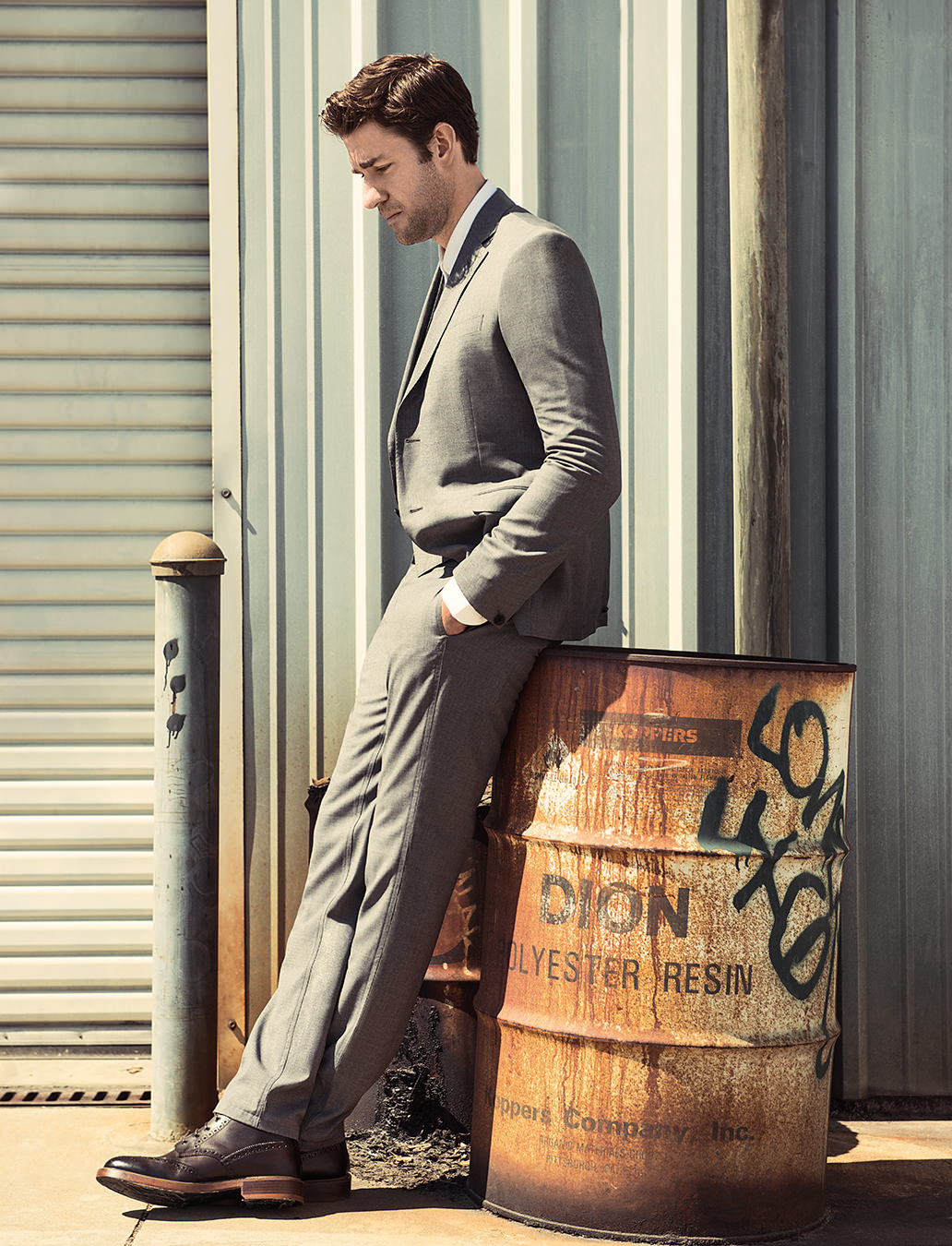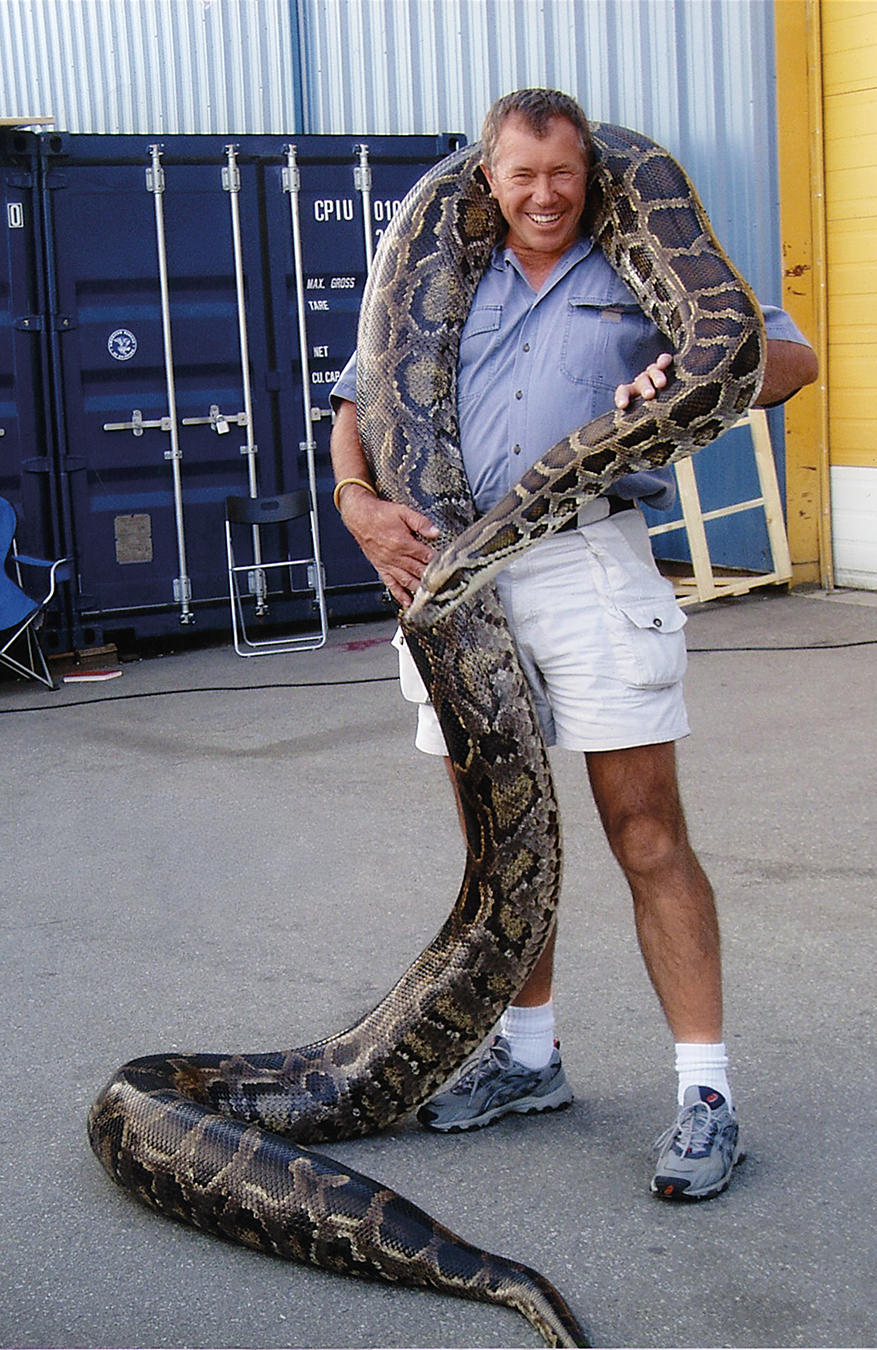Viggo Mortensen on His Acting Career and Foray Into Publishing
Man of many talents.
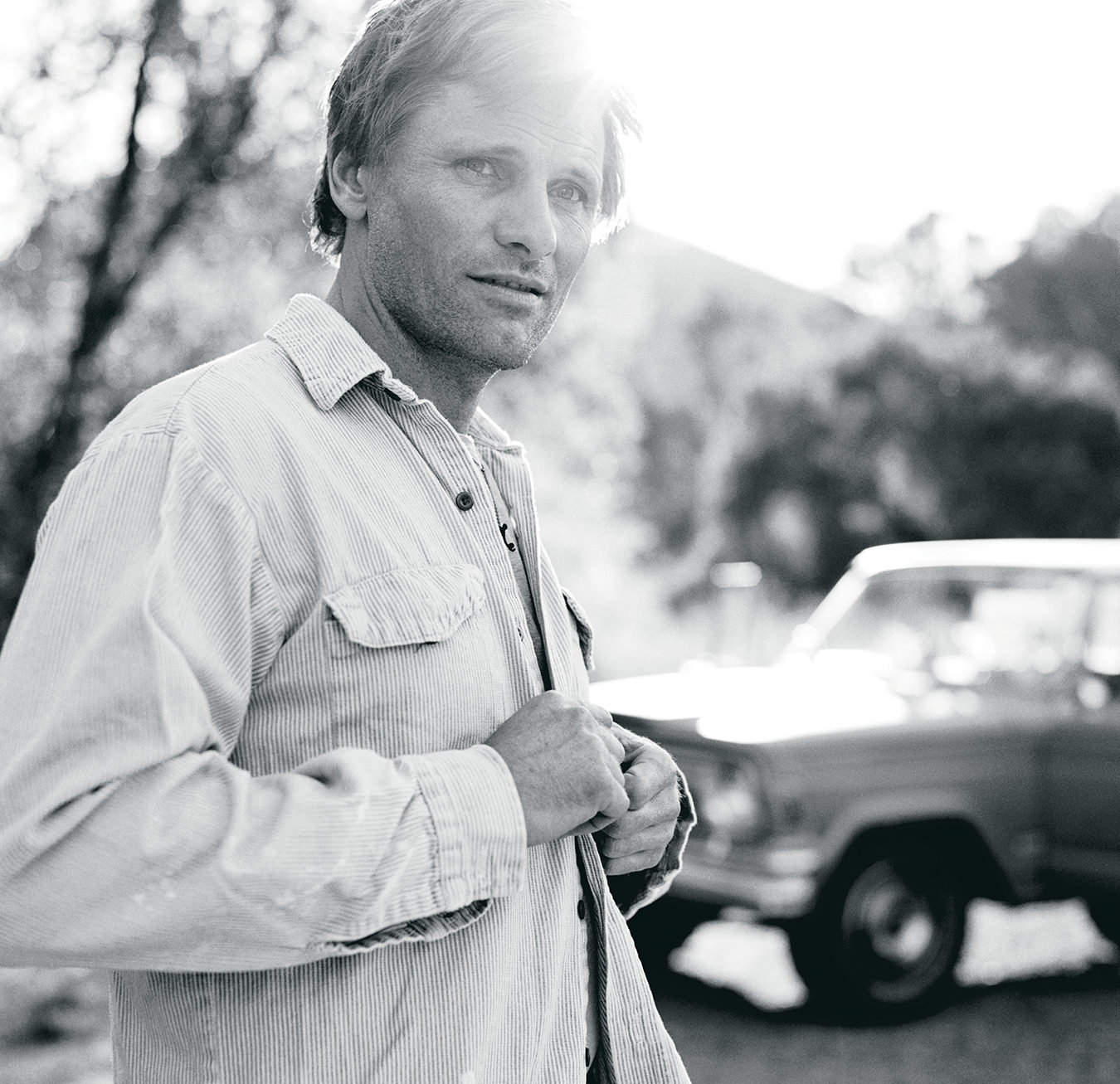
It’s 9:55 p.m. in New York, and I’m waiting eagerly by the phone, like a teenage girl hoping her crush will call and ask her to the prom. I’ve been informed that Viggo Mortensen—who starred in A History of Violence in 2005, and is best known for playing Aragorn in the Lord of the Rings films—will ring me promptly at 10:00 p.m. I’ve been given no other information: no idea of where he will be phoning from, not even a contact name or number should something go awry. And so I wait, staring at the phone, daring it to make a move.
With nearly 40 films under his celluloid belt, Mortensen has worked with some of Hollywood’s biggest names: Demi Moore in G.I. Jane, Sean Penn in The Indian Runner, Brian De Palma in Carlito’s Way. (His various characters have also had the illustrious distinction of sleeping with Diane Lane in A Walk on the Moon, and Gwyneth Paltrow in A Perfect Murder.)
Recently, the 48-year-old has been working on three new films: the Spanish film Alatriste, which came out last year; Good, which has just wrapped production; and Eastern Promises, which will be released this fall. His busy schedule might explain why it’s 10:22 p.m. and the phone has yet to ring. Panic is starting to rise inside my chest.
When the phone finally trills a few minutes later, I lunge for it.
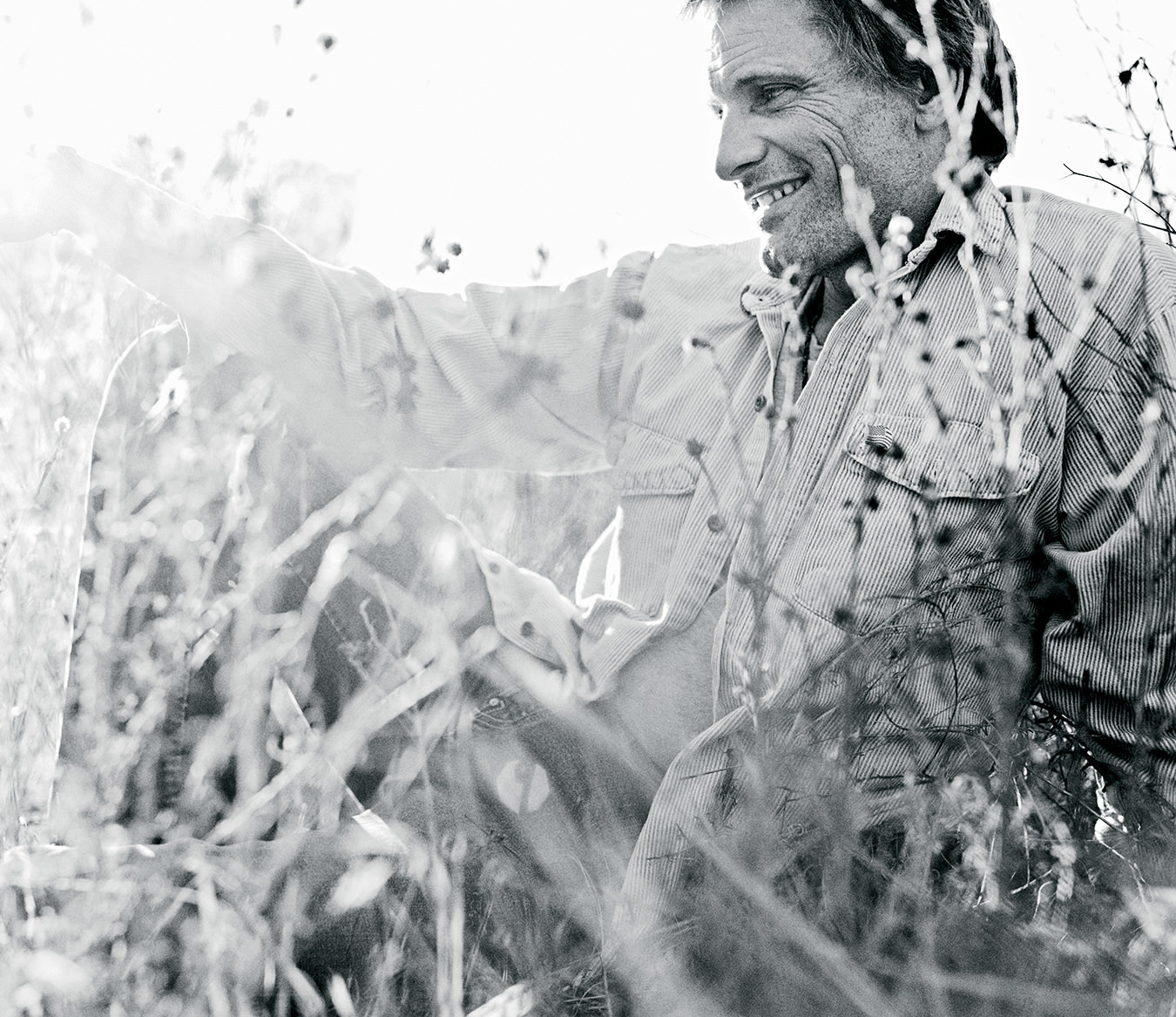
“I’m sorry,” Mortensen says after we’ve exchanged hellos. “I didn’t mean to be so late.” His voice has a deep, sandpaper-like quality to it, like cut glass.
“That’s okay.”
There’s almost complete silence on the other end. I hear the whoosh of something (traffic?) zipping by. We start with the basics: his new films, his intense schedule, what it was like working on Eastern Promises, his second collaboration with A History of Violence director David Cronenberg.
“The film [Eastern Promises] is about the Russian underworld in London,” he says, his voice sounding tired and slightly slurred, as if it hurts him to speak. “What’s great about Cronenberg is that you’re in his world, this fictional reality. Even though he’s so detail-oriented and doesn’t like to waste time, he’s relaxed and loose. As an actor, he makes you feel safe.”
In the film, Mortensen plays a Russian gangster caught up in one of London’s organized-crime families. (He travelled to Russia to prepare for the part and master the language.) The film also stars Naomi Watts as a hospital midwife who crosses paths with Mortensen’s character. Eastern Promises will have a gala opening presentation at the Toronto International Film Festival.
The roles that Mortensen chooses are often notorious bad guys with violent behaviour and anger issues. Not parts for actors with thin skin, or who scare easily.
“The character I play in Promises is different from others [I’ve played],” he says. “He doesn’t engage in any physical violence, and most of my past characters have. This was a nice reprieve, but it was still a lot of work.”
We talk a bit about how he picks a role, and how he prepares to portray his characters.
“First, it’s the story,” he says. “I read the script once, then read it again to see what the character’s journey is. I’ve played a lot of people I wouldn’t want to meet, but I never place judgment. I’m going to find a reason why I kill people, and I’m going to accept that and play that part. I don’t try to be liked. Actors fall into the trap of wanting to be physically attractive or appealing. I’m just as paranoid as the next guy about getting it right, but I’m not going to compromise the story in order to do that.”
I’m about to ask him another question, thinking he’s finished with his thought, but he continues on, barely taking a breath.
“Then once I’ve accepted the job, I try to figure out what happened before the first page of the script. I’ll invent a whole story that literally takes me from the birth to the opening scene.”
Mortensen has been quoted as saying that he’d be fine if he never did another movie. Does he still feel this way?
“Yeah, I do. Movies take up a lot of time. They’re exhausting. And then there’s the promotion, the interviews—and I accept that. For Good, we were filming six days a week, and instead of resting on the seventh day, I was promoting something else, another movie, like I’m doing now. And I wasn’t recharging. That constant grind is exhausting. I’m not complaining, but I’m human.”
“Actors fall into the trap of wanting to be physically attractive or appealing. I’m just as paranoid as the next guy about getting it right, but I’m not going to compromise the story in order to do that.”
I’m sensing a bit of resistance. Mortensen is very private, and I get the feeling that interviews are his least-favourite part of the business; it seems like, quite simply, he’d rather be doing something else. Perhaps now would be a good time to switch gears and talk about some of his other interests, of which he has several. Not many people know that he’s a published poet, a jazz musician, and a photographer. And in 2002, he started a publishing company, Perceval Press, because he wanted to give a voice and an opportunity to writers and artists who deserved to be published and hadn’t been. I ask him about Perceval.
“We publish books and spoken word. If you go to our website, you’ll find all the information you need.”
Frustration has seeped into his voice. I improvise, shifting gears again. “Maybe you can tell me about your day?”
“I got up before the sun rose, and I’ll go to bed after it sets.”
Okay, maybe not.
“I meant specifically—like what did you do today?” I say, trying to encourage him.
He sucks in some air. “I’m not going to tell you everything. Mostly reading and editing books, and working on photographs.” The buzzing on the other end is the only thing filling up the silence. My late-night caller is losing patience.
“I feel stupid talking about my day,” he admits. “I don’t mean to be rude, but it’s personal and I’m not going to tell you.”
Clearly, he won’t be asking me to the prom anytime soon.
“Where are you calling from?” I ask—one last attempt to connect.
“I’m sitting in a car talking on a cell. I rarely use them. In this case, I wanted to be alone and in a quiet place. The phone was dead and I’m charging it as we talk, which is why I was late. I still can’t figure out how to retrieve my messages.” Ah—something personal and tangible, I think.
“I didn’t have one for several years, and would call in my messages from a pay phone on the corner near my apartment.” His voice has taken on a slower, easier quality. Something inside him has altered, relaxed. Maybe now he is ready to talk to me.
“I might not check my messages for days, and I probably lost some jobs because of that. When I finally got one, I threw it out the window when it rang because the sound was so annoying. A neighbour rang my bell, asked me if it was mine, and handed it back to me. I put it in the closet under a pile of laundry, and a few days later it rang again. I didn’t like the intrusion and tossed it out the back alley.”
One reason he yielded to a cell phone was for his son, Henry, born to Mortensen and his ex-wife Exene Cervenka. Mortensen met Cervenka, an actress and musician, on the set of Salvation!, a film the two made in 1987. Henry, now 19, is Mortensen’s best friend. (It was Henry’s enthusiasm for J.R.R. Tolkien that was responsible for his father’s decision to play Aragorn in The Lord of the Rings.) In fact, it’s his son’s navy-blue Toyota Prius hybrid that he’s sitting in right now.
“It used to be my car,” he says. “I got it six years ago, when they first came out.”
I still don’t know where Mortensen’s calling from, but I picture him pulled over on a side street with one-storey homes, surrounded by parked cars and palm trees. I visualize the brooding manliness he projects onscreen: his chiselled good looks; his soft, slightly tanned skin; and his dirty-blond hair, which falls ever so perfectly, seductively, over his signature blue eyes. He is not a traditional actor by any means, but he does have that rugged attractiveness that Hollywood demands.
“You know, you’ve made it onto a number of lists, like ‘most beautiful’ or ‘hottest man’ or ‘sexiest person’,” I say, finally feeling close to the voice I’ve been speaking to for the past hour.
“As an artist you observe the world. Sometimes it takes an accident to make you appreciate why you’re here, and you ask yourself, ‘What can I do to contribute to the world?'”
“It’s flattering, but honestly, it’s a stranger in an editorial room making the list—and after, people can’t wait to see the next one. ‘Who’s the drunkest?’ ‘Who’s the fattest?’ ‘The worst-dressed?’” he says dismissively. “Who knows? It’s a positive thing to be called attractive, sure. But those lists sell magazines and images and records. It’s a sales tool. I could be missing an arm, and then what list would I make?”
“You’d be on the ‘hottie-with-a-missing-arm’ list,” I say, and he laughs, his voice sounding rich and full of texture.
“I got hit in the head once while I was living in New York,” he says, making a tidy segue while on the topic of injuries. “It was 1983, and I was trying to make it as an actor and working at a restaurant in the garment district. It was Sunday afternoon and very quiet. I had the Times in my hand and I was crossing the street when a car ran through a red light and hit me in the hip. I shot into the air and the newspaper went flying, then I got hit in the head and then I had no feeling. It was very dreamy and I thought I was paralyzed. I was lying on the street, bleeding out of the back of my head, when a wino bent down in front of my face. He smelled like strawberry wine and his hair was greasy, and he put his hand under the back of my head and said, ‘Feels kind of mushy.’ Then he looked around and said, ‘I gotta go. Korea.’ And like an apparition, he was gone.”
“You must have thought, ‘This is it.’”
“I did,” he says. “Something like that makes you pay attention to your surroundings. As an artist you observe the world. Sometimes it takes an accident to make you appreciate why you’re here, and you ask yourself, ‘What can I do to contribute to the world?’”
There can be no doubt that Mortensen has spent the last couple of decades making artistic contributions, whether it’s onscreen playing the part of an Amish farmer in Peter Weir’s Witness in 1985 (his film debut), or through his writing and spoken word—Perceval lists 16 CDs and books of his poetry. He’s exhibited work in galleries in Los Angeles, New Zealand, New York, Denmark and Cuba. He is indeed a Renaissance man, and a fount of creativity.
I ask him, “Will you recite one of your poems?” The conversation has been shaky at times, and I’m not sure he’ll take this leap with me. It’s well after midnight, and my apartment has taken on a dark, quiet hush. The lights are out, and the only glow emanates from my computer screen.
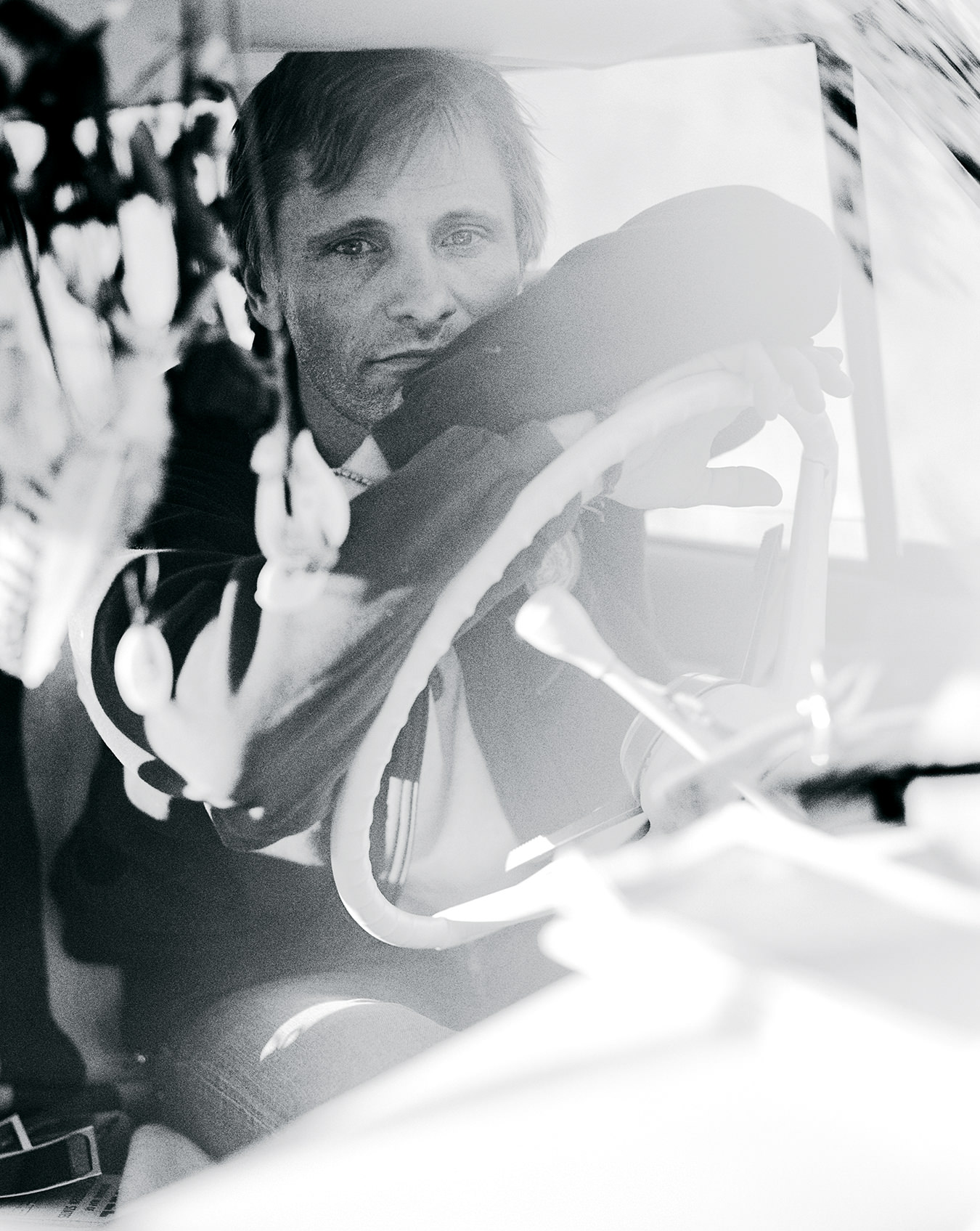
Then he speaks. “You sweat in sleep / like a lost summer cloud / pierced by a jet heard / only when it’s gone.” His voice fades in and out a bit. The slurred, raspy quality is now soft and soothing. Comforting and lulling.
“What I like most about poems is they compress the details,” he says. “You’re left with a feeling that there are many layers.”
I understand; it’s rather similar to the complex, multi-levelled and multi-faceted performer with whom I’ve connected tonight. Somehow, as the clock crossed over from yesterday into today, we’ve almost become friends.
“Well, I guess that’s it,” he says.
“I guess it is.”
And then we almost don’t know how to end the conversation. Like kids, we say goodbye several times, each time laughing for a few seconds when the other person doesn’t hang up. We can hear each other breathing, waiting for the other to add one more thing. Eventually—finally—we hang up.
In the morning there are two e-mails from him. At first I worry that he’s rethought the interview; perhaps he doesn’t want me to print everything—or anything—he’s told me. Instead, he’s cut and pasted several poems into the e-mail. A couple are by Margaret Atwood and Leonard Cohen, and there’s also the one he quoted to me—his own—just a few hours ago. He signs off by writing, “Good talking with you and if you send me your address, I’ll send you some books.”
A few days later, a large, heavy box arrives. Inside is a Mortensen mixture. He’s included his books of poetry, photography and CDs; a handful of works by some of the artists he publishes; and a T-shirt. (It reads, “Support our troops. War is not the answer.”) I’m touched by his generosity, and by the invitation Mortensen has granted me: the opportunity to get to know him better.
I’ve been asked to the prom after all.
All photos by Julian Broad/Exclusive by Getty Images.



